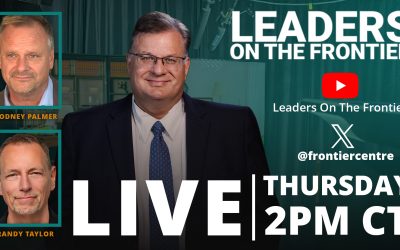Society is built on this idea we label loyalty. We are expected to exhibit loyalty to our families, to our schools, to our careers, workplaces, colleagues, and to sports teams and brands. This notion about loyalty is ingrained into our psyches early in our development.
What starts as small circles of loyalty grows into larger spheres, spheres that overlap, and spheres that become confused and problematic. As we mature, we understand the different types of intersections loyalty presents to our obligations to our friends, religion, and family. We develop our own identities, experience life in ways that are different from our families and friends, and we form new frameworks for assessing the moral and ethical ingredients for a good life, for a just life, for living with ourselves. That is the ultimate overlapping of spheres—the living with oneself while also living with myriad external societal expectations of life.
Our determinants for personal loyalty, like the determinants of societal loyalty, are constantly evolving and being shaped by new information, events, and outcomes. They are filtered through the lens of loyalty we possess at that moment; our sense of loyalty, however, is constantly changing—expanding or shrinking. Cultures inclined to collectivism create impulses for shared long-term attitudes, beliefs, norms, and values. Individualism places personal freedoms and therefore freedom for non-conformity ahead of collectivism—rooted in the theories of philosophers such as Jeremy Bentham, Adam Smith, and John Locke.
But what exactly is loyalty? Does loyalty include protecting family members who break the law from being caught? Are there breaches for which one can justify protecting a law-breaking family member? Are there other breaches for which loyalty should not provide protection? What are those boundaries and limits? Are there things that your teammates can do to breach sportsmanship for which you are expected to extend loyalty, protection, and solidarity, and others that should compel you to turn in your teammate or leave the team?
Loyalty is a complex concept; suffice it to say that most of us understand it as a virtue. Sticking to the object of our loyalty means enduring inconvenience, withstanding temptation, and not cringing under assault. We tend to frame its opposing term as disloyalty, betrayal, or treason.
Two problems must be considered here—the first is this notion of what loyalty is. The second is just how far should loyalty extend?
Clearly, we cannot go about turning in everyone we know to the authorities, outing them, or even confronting them for every breach of a law or rule. Society would simply come to a standstill; that is the unfortunate reality. All of us break rules, take shortcuts, or fail in some way in our daily lives: speeding, parking illegally, sneaking a look at our phone while driving, tossing something in the recycling bin that we should not, sneaking off work a little early, or sneaking in a little late.
But these are small, perhaps inconsequential things. How about letting a friend drive off after one too many drinks? What about enabling a colleague who tells misogynistic jokes, or the bully who mistreats a co-worker or fellow student? How about a member of your national team who sneaks a performance substance? Whether enabled by inaction or complicity, loyalty is defined, redefined, and tested by the willingness of the participants to adhere and hold one another to the standards. Loyalty is only noble if it is defined to further a higher good, of a good life, of a just society.
Loyalty does have limits and liabilities. Loyalty is not indiscriminate or without accountability. Society defines boundaries through normative expectations, non-formal sanctions, and restrictions defined by laws. This is the social contract within which we operate, the overlapping limits of a framework for defining loyalty.
The true sense of loyalty needs to be understood as a transactional agreement. A sports fan can be loyal to a team in exchange for the enjoyment and pride that that team conveys to the fan. A consumer extends loyalty to a certain brand of phone or computers because of its quality, support services, and status. But in every case, there is a transactional expectation, whether implicit or explicit, for beneficial exchange and with limits. My loyalty to my favourite sports team does not extend to its members bullying or abusing their teammates, nor does my loyalty to a brand extend to unethical exploitation of my interests.
A business fails when its defections—customer, employee, and investor—– reach critical proportions. It works when these same three populations develop a loyalty, each in their own ways, to the company.
Loyalty, therefore, is based on a mutual agreement of a set of terms and if the terms are breached, loyalty is breached. But more than that, loyalty is a moral agreement to abide by a set of transactional expectations, and to hold each other to those expectations. And when expectations are breached there is, or should be, an added expectation that the party observing the breach will abide by a responsibility to hold the breaching party accountable. We, in effect, agree that we will act within certain bounds which we admire and value and, therefore, also to hold ourselves to those standards. Failing to hold the breaching party accountable would, therefore, constitute another breach of loyalty.
This is also the framework for loyalty that is necessary and integral to any reform movement. Police officers, priests, or political parties cannot be brought to acting ethically without this understanding of loyalty. Anything short of that only justifies the protections of the dysfunctions we wish to root out—the blue wall of silence, the toxic masculinity, or bias and racism.
There is, unfortunately, a perception that loyalty is always admirable and has an intrinsic moral value. Loyalty among thieves, gang members, or corrupt leaders is also loyalty; and even in these circumstances there is a transactional expectation, a quid pro quo, and breaching loyalty within a gang or its code can have deadly consequences.
Loyalty can be good or bad, and should be continually assessed through a critical lens. Loyalty is a form of contractual agreement we apply in multiple facets of our private and public lives. We are in fact defined by our myriad relationships, constituted by the range of loyalties to which each relationship obligates us—ranging from our fidelity to a friend to our service to the nation. Loyalty influences our debate and positions on substantive social issues and personal values. But more importantly, loyalty can also impact how we perceive and resolve conflict and legal disputes. Loyalty requires the exclusion of another in favour of the one, and in this way loyalty also influences our morality—our sense of inclusion and exclusion.
Loyalty is a sentiment; it is a commitment.
Arguably, the test of loyalty is conduct rather than intensity of feeling, primarily a certain “stickiness” or perseverance—the loyal person acts for or stays within or remains committed to the object of loyalty even when it is likely to be disadvantageous or costly to the loyal person to do so.
Loyalty represents a personal test that each of us must apply to the values that bind us to the object of our loyalty, the sanctity of those values and principles, and our personal commitment to their preservation.
We may be loyal to a certain object, but our individual tolerance or “stickiness” may vary from person to person. And in some instances, this stickiness may result in sub-categories of loyalties within a loyalty—a test of group cohesion—the diehards versus the conditional. The extreme expression of loyalty is demonstrated by those with “blind faith,” an unconditional, unquestioning commitment. More than stickiness, it represents bondedness. But unquestioning loyalty is rarely if ever good.
Loyalty creates affiliations that become embedded in one’s social networks to create obligations and expectations that become difficult to undo. Such affiliation then, shapes one’s commitments and loyalties in other spheres. There is a coercive influence that tests the stickiness of one’s overlapping loyalties. It is here that integrity and loyalty cross paths. Loyalty intersects with the notion of integrity—“truthfulness and sincerity, lucidity and commitment, or, as some say, authenticity.”But more than that, integrity also requires consistency and reliability—the consistency of one’s application of principles to various transactions of loyalty.
We all have inclinations towards blind faith, to tentative affiliations, and coerced social loyalties. Like so many virtues, loyalty can serve good or bad, and it is dependent on our ability and commitment to learn, to be informed, and to be judicious. The determinants of personal loyalty, like the determinants of societal loyalty, are constantly evolving, being shaped by new information, events, and outcomes. Assessed through the lenses of loyalty we possess at that moment, our sense of loyalty is continuously expanding and shrinking.
The problem today is not that we lack opportunities to learn; information is available and accessible as never before. Our loyalties are therefore being impacted by expansion and constriction faster than at any other time.
Loyalty today requires, more than ever before, that we take time to examine our personal notion of integrity—“truthfulness and sincerity, lucidity and commitment, and authenticity.” But more than that, we must examine the consistency and reliability with which we apply our principles to our various transactions of loyalty.
Loyalties can become fickle or stuck. The danger lies not in our inability to learn; it lies, today, in our inability to unlearn what we have already learned and re-learn over and over again, as much as necessary and possible. This constant learning, unlearning, and re-learning requires work; it is taxing and takes commitment. It is easy to become exhausted, to choose to become complacent, to be lazy; but this is to surrender, to diminish our moral obligation to ourselves and to society.
Anil Anand is a research associate with the Frontier Centre for Public Policy.
Photo by Tristan Le from Pexels.



